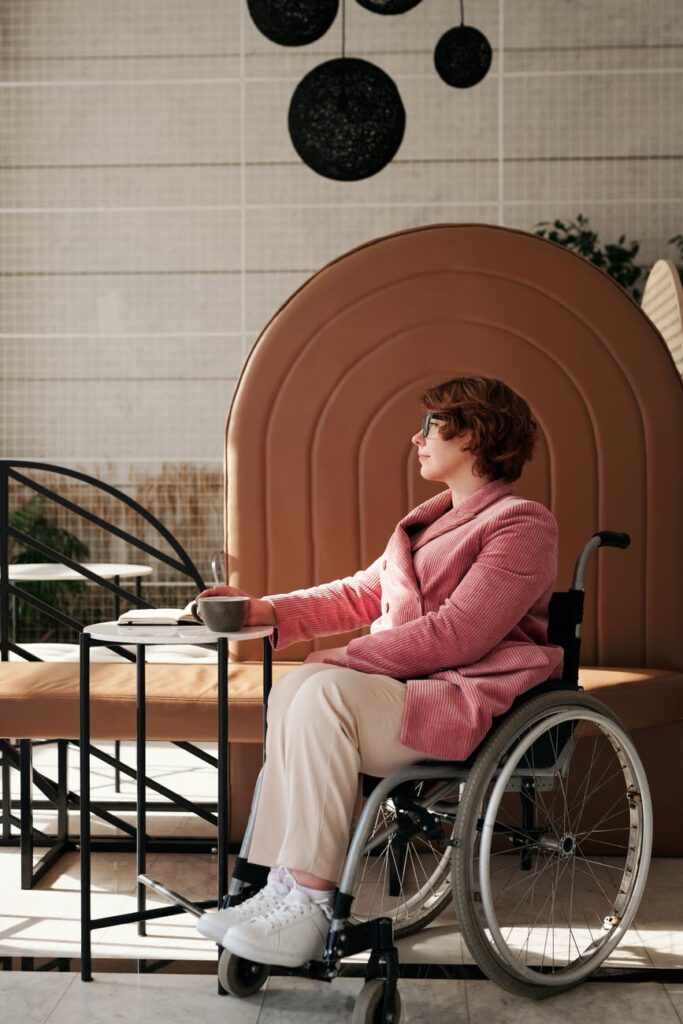
Only a couple of decades ago, accessibility for disabled travellers was limited and obstructions existed, but now, tourist sites and destinations are more keenly aware of their responsibilities. Though there’s no denying that there’s more work to be done and barriers still exist to disabled travel, recent progress can only be a good thing.
Today, nowhere should be off-limits. Hotels, cultural attractions, museums, and even city streets are more convenient than they’ve ever been before. That said, mechanisms and platforms exist to make disabled travel to certain destinations and with certain companies particularly free from hassle. With that in mind, if you’re travelling with a disability, consider these 5 tips for a better experience.
VISIT DISABILITY TRAVEL SITES
Euan’s Guide is a disabled access charity whose mission is to make it easier for disabled people to travel and find great places to go. Their review website holds thousands of write ups and reviews for all kinds of places across the UK and beyond and are written by disabled people for disabled people, with tips, advice and information on disabled access of various destinations all available.
The website Tourism For All is another useful resource, promising to make accessible travel better. On the platform, you can search disability-friendly accommodation, restaurants and things to do, complete with filters which show you specifics for ramp access, wheelchair access, disabled parking, and National Accessible Scheme Ratings for those with hearing loss, those who are visually impaired and those using a wheelchair. The website also includes a subsection on Autism-friendly accommodation and attractions; hurrah!

CONSULT A TRAVEL AGENT
The good news is that all tour operators in the UK are legally obligated to provide for disabled holidaymakers. As such, an agent specialising in working with physically disabled travellers is commonplace within travel companies, and can help provide advice and planning help with various aspects of your trip, including booking your airline tickets, and organising disability-friendly, accessible tours and restaurants.
Alternatively, you could choose to arrange your trip with a dedicated travel company. Sites like DisabledHolidays.com are skilled at providing disabled travellers with all the specialist support and guidance they need.
PLAN YOUR STAY IN ADVANCE
If you’re planning to book accommodation yourself, it’s a good idea to plan your stay in advance. You can search for accessible listings on Airbnb. Here, hosts can highlight features of their home that make it more accessible for guests who use wheelchairs, canes, or other mobility aids. The company is also working in collaboration with Lighthouse for the Blind and Visually Impaired and Level Access, researching how people with limited vision use screen access technology to visit their website and app. Expect the app to become more user friendly for those with a disability in the near future.
Should you be hoping for accessibility provisions when booking an independent operator, the guys over at Brickhouse Farm Cottages, who offer disabled access and facilities, advise that tourists with disabilities should always let them know in advance if there are any specific requirements. Some companies (like themselves) can offer disabled guests portable hoists, riser recliner armchairs, shower chairs and other facilities if asked for in advance; something more hotels and self-catering accommodations should all be doing.

ASK YOUR AIRLINE FOR ASSISTANCE
Should you be flying with a disability, do inform your airline in advance; they’re legally obliged to provide assistance, at the airport and getting onto the plane. Many airlines will assign an employee to meet you curbside with a wheelchair (should you need one) and lead you through security. You can also request help when you land at your destination.
The Civil Aviation Authority state that ‘’If you’re a passenger with a disability or reduced mobility you are legally entitled to support, commonly known as ‘Special Assistance’, when travelling by air. This means airports and airlines must provide help and assistance, which is free of charge, and helps ensure you have a less stressful journey.’’
‘’Special assistance is available to passengers who may need help to travel such as the elderly, those people with a physical disability, such as wheelchair users, and those who have difficulty with social interaction and communication, such as those with autism or dementia’’.
Indeed, there is normally no charge for such assistance, as long as you inform the airline at least 48 hours prior to travel. Still, policies differ, and these laws only apply within the EU, and according to the airline, and may depend on available staff and your medical condition; so, be sure to sort this out with your airline before you fly. Many airline companies will also allow guide dogs on board free of cost for visually-challenged passengers (again, as long as you make a booking for your guide dog at least 48 hours in advance of your travel).
KNOW YOUR RIGHTS
As the solicitors at the Bott+Co point out, “Section 29 of the Equality Act 2010 is crystal clear on the point that disabled holidaymakers deserve first and foremost to enjoy a holiday just as an able-bodied person would. It states, “Where a physical feature puts a disabled person at a disadvantage in comparison to a person who is not disabled, there is a requirement to take steps as is reasonable to avoid the disadvantage”.
They go on to say that ‘’examples of these “steps” that tour operators must take to make a disabled person as comfortable as possible include putting them in a ground floor room if necessary, or in a room with a designated disabled-access bathroom.”
They advise to “Inform the tour operator of the details of any disabilities before booking the holiday, what it means for them in what they can or cannot provide and what you specifically need as a result. Ensure that this is in writing (email is fine too) and keep the tour operator’s written response.” Reassuring stuff, indeed.
Knowing your rights will help you enjoy a smooth holiday free from unnecessary burden, supported by your accommodation and airline provider, as well as any tourist destination you visit. Be sure to inform companies in advance, so they prepare everything for the smoothest possible travel experience. We hope you have a wonderful trip!





